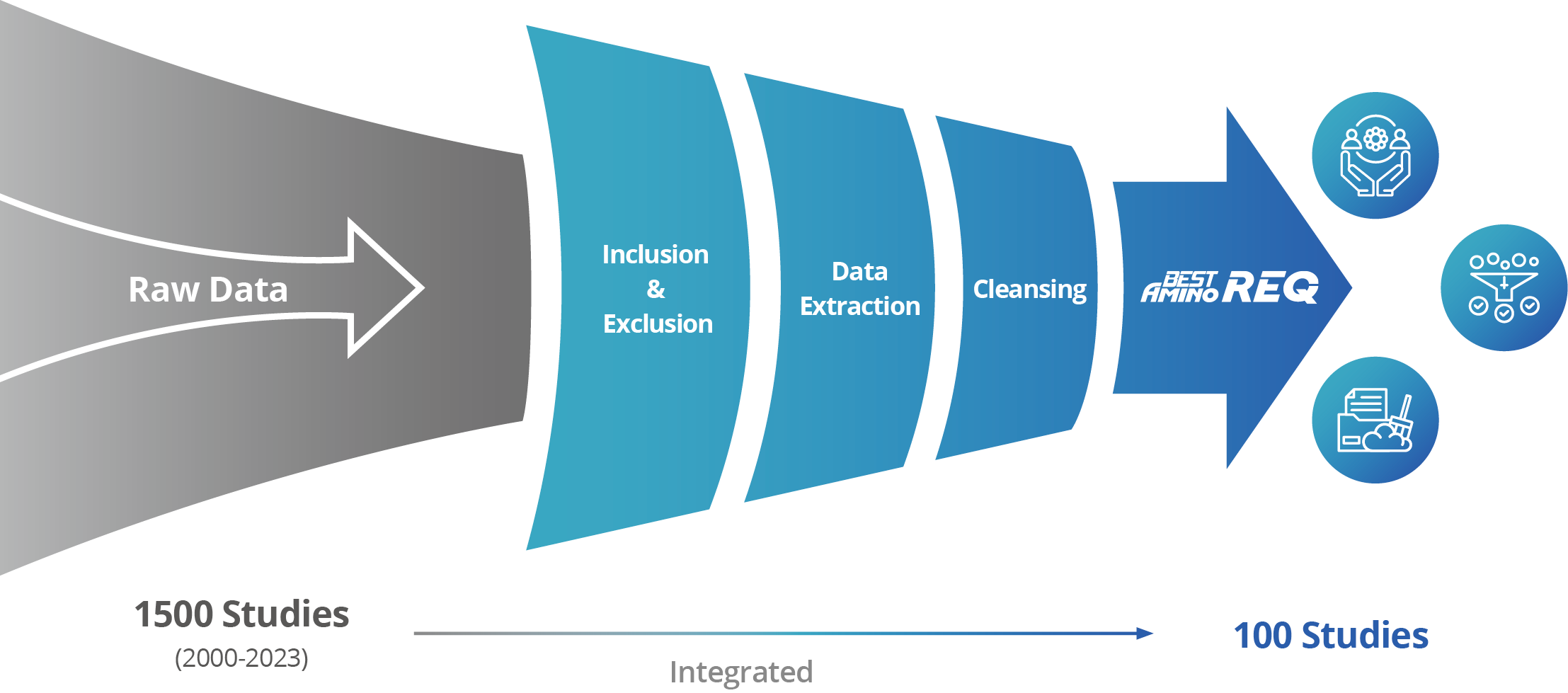Boost your productivity with CJ’s optimized amino acid recommendations, created by combining the latest research data analysis. Experience CJ's innovative solutions now.
Approach to access BestAmino REQ
Environmental shifts are changing swine nutritional needs. Stay ahead with CJ's innovative amino acid recommendations. Our guidelines, developed through meta-analysis with leading research institutions, are tailored for modern swine production challenges. Maximize your pigs' growth potential with CJ's data-driven nutrition solutions.

Statistical
Analysis
- Effect Size (Y axis) GF (% of best performance) = GF/max(GF) × 100
- Linear plateau model (LP)
- Curvilinear plateau model (CLP)
- Quadratic model (QUAD)
Reference
Chae, B.; Poaty Ditengou, J.I.C.; Lee, A.-L.; Tak, J.; Cheon, I.; Choi, N.-J. An Estimation of the Requirements of the Standardized Ileal Digestible Tryptophan, Valine, Isoleucine and Methionine on Young Pigs’ (Up to 50 kg) Feed Efficiency: A Meta-Regression Analysis. Animals 2024, 14, 2884. https://doi.org/10.3390/






